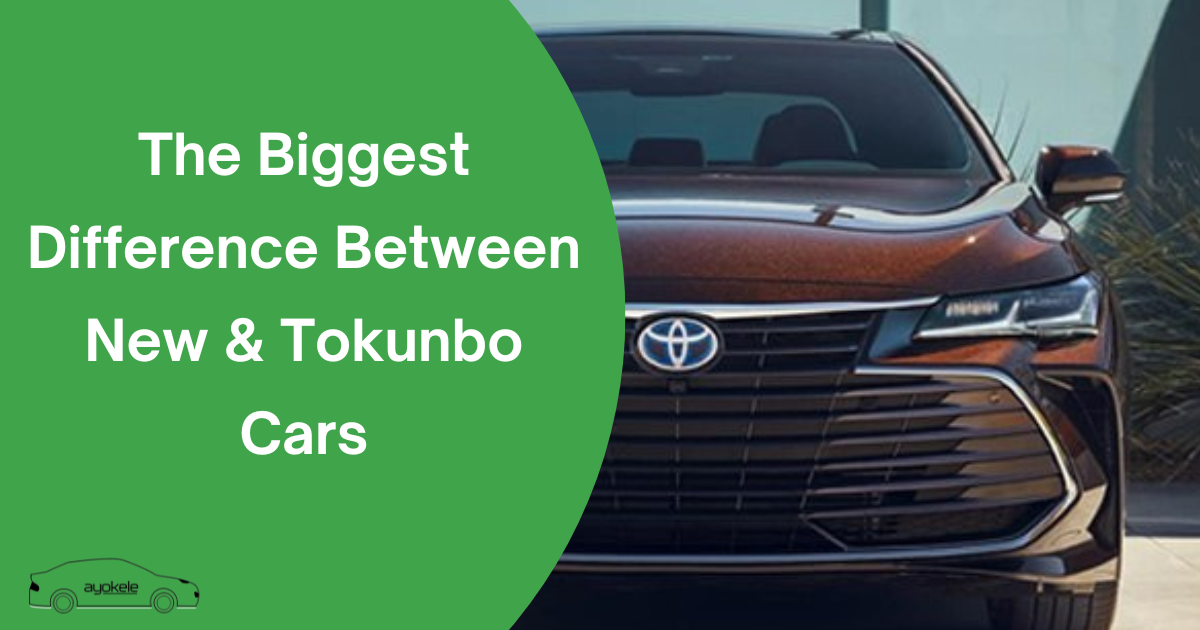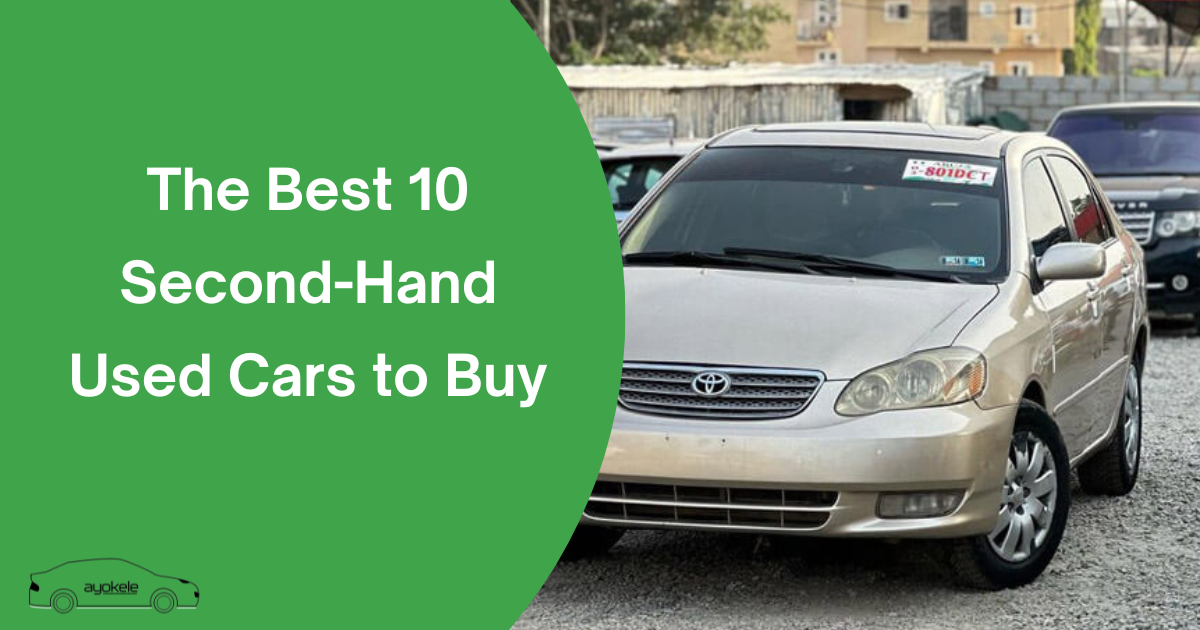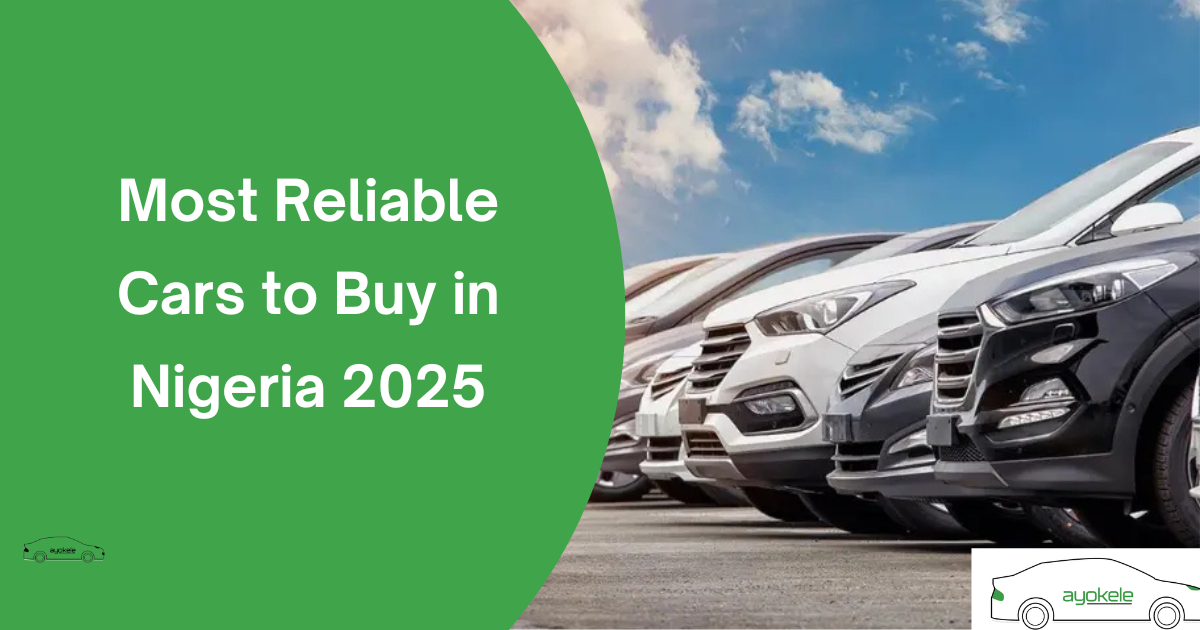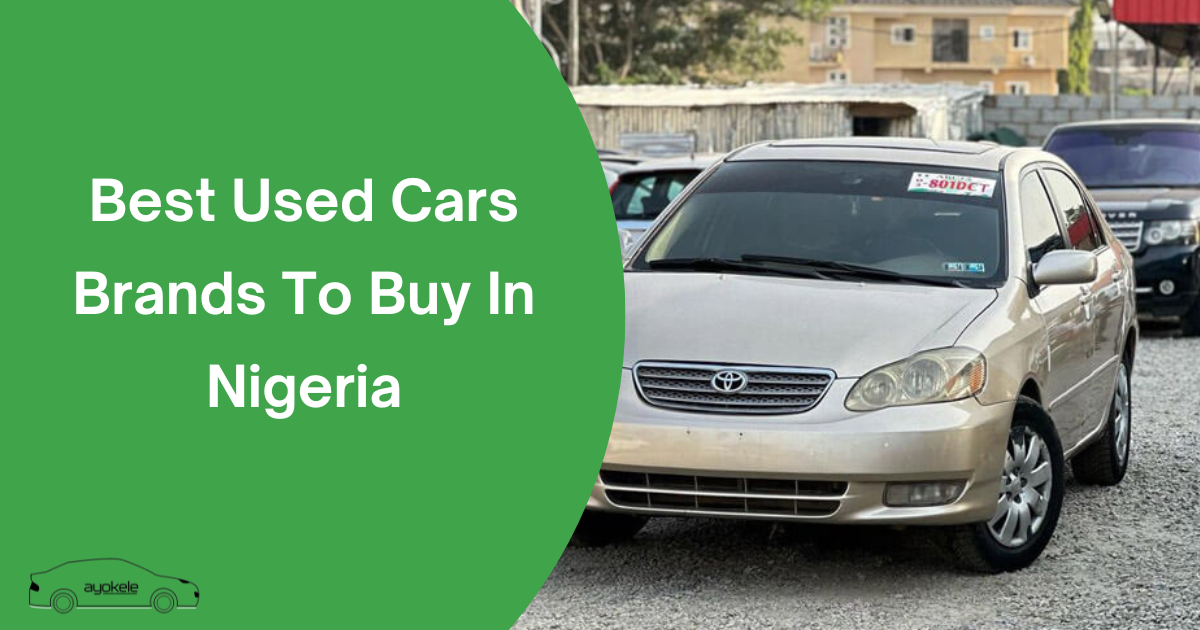The car market offers buyers two primary options: new cars and Tokunbo cars, which are foreign-used vehicles. While new cars come with the appeal of being untouched and fitted with the latest features, Tokunbo cars are often a more affordable option, making them highly popular among buyers. Both options have their advantages and drawbacks, making it essential to understand the key differences before making a purchase. In this article, we’ll explore the biggest differences between new and Tokunbo cars in Nigeria. This guide will help you make an informed decision that suits your needs and budget.
What Are Tokunbo Cars?
Tokunbo cars, a term commonly used in Nigeria, refer to foreign-used vehicles that are imported into the country for resale. These cars are typically pre-owned vehicles that have been used abroad, most often in countries like the United States, Europe, or the Middle East. They are sold in Nigeria as a more affordable alternative to brand-new cars, making them highly popular among buyers looking for cost-effective options.
The appeal of Tokunbo cars lies in their relatively lower price compared to new cars. However, since they are pre-owned, their condition varies depending on factors such as previous usage, mileage, and maintenance history. Some Tokunbo cars are well-maintained and still in good condition, while others may have hidden issues that require repairs. For many Nigerians, Tokunbo cars represent an accessible way to own a vehicle, especially when new cars are beyond their financial reach.
Key Differences Between New and Tokunbo Cars
1. Price
New cars are significantly more expensive, as they come directly from the manufacturer or authorized dealerships without any prior usage. This price includes taxes, import duties, and the premium for having a brand-new vehicle with zero mileage. For many Nigerians, the cost of a new car can be a major barrier, especially for luxury brands or high-end models.
Tokunbo cars, on the other hand, are more affordable because they have been previously owned and used abroad. Their lower price makes them an attractive option for middle-class Nigerians who want to own a vehicle without breaking the bank. A Tokunbo car in good condition can cost half or even less than the price of the same model when purchased new. This affordability is a key reason why Tokunbo cars dominate the Nigerian market.
However, buyers should note that while Tokunbo cars may cost less upfront, there could be hidden expenses for repairs and maintenance. In contrast, new cars may have a higher purchase price but come with the advantage of warranties and minimal repair needs in the early years of ownership, potentially saving money in the long run.
2. Condition and Mileage
New cars are untouched, with zero mileage, and have never been driven before being purchased. This guarantees that they are in pristine condition, with no wear and tear on components such as the engine, brakes, or suspension. Buyers can expect a new car to function perfectly without the risk of pre-existing mechanical issues.
Tokunbo cars, on the other hand, often come with varying levels of usage. Their mileage, which indicates how far the car has been driven, can range from low to very high depending on the previous owner. Additionally, the condition of Tokunbo cars depends heavily on how well they were maintained by the previous owner. Some cars may arrive in excellent shape, while others could have hidden mechanical problems or signs of wear and tear.
3. Warranty and After-Sales Support
New cars come with the added benefit of warranties, which typically cover repairs and maintenance for a specified period or mileage. These warranties give buyers peace of mind, as any mechanical issues that arise within the warranty period are repaired at no extra cost. Additionally, new car dealerships in Nigeria often provide after-sales support, such as servicing packages and roadside assistance, further enhancing the value of buying new.
In contrast, Tokunbo cars rarely come with warranties. Once you purchase the car, any repair costs or maintenance issues become your responsibility. This lack of warranty is one of the biggest risks associated with buying a Tokunbo car, as any problems that surface after purchase could lead to significant expenses. Some dealers may offer a limited warranty for a few months, but this is not common practice.
For buyers who prioritize long-term reliability and support, the warranty and after-sales services offered with new cars make them a more appealing choice. However, for those who are willing to take on the risks of owning a Tokunbo car, thorough inspection and careful selection can help minimize potential issues.
4. Features and Technology
New cars are equipped with the latest features and advanced technology, reflecting the latest developments in the automotive industry. From state-of-the-art infotainment systems and advanced driver-assist features to enhanced safety systems like lane-keeping assist and collision detection, new cars offer a superior driving experience. Additionally, newer models are often more fuel-efficient and environmentally friendly due to stricter emission standards and improved engine technology.
Tokunbo cars, on the other hand, are typically older models that may lack these modern features. While some higher-end Tokunbo cars might come with advanced technology, it’s not uncommon for their systems to be outdated or incompatible with local preferences. For example, some imported vehicles may have navigation systems designed for foreign roads, rendering them useless in Nigeria.
While Tokunbo cars may not have the latest features, they still serve as reliable options for buyers who prioritize functionality over technology. However, for those who value modern conveniences and cutting-edge systems, new cars remain the better option. The technological gap between new and Tokunbo cars is a key consideration when making a purchasing decision.
5. Maintenance and Repairs
Maintenance and repair needs differ significantly between new and Tokunbo cars. New cars require minimal maintenance in their early years because all components are brand-new and in perfect working order. Many manufacturers also include free servicing for the first few years, which reduces the cost of upkeep. Additionally, new cars are less likely to experience breakdowns or require major repairs.
In contrast, Tokunbo cars often require immediate attention after purchase. Due to their prior use, some components may already be worn out and in need of replacement. Tires, brakes, and suspension systems are common parts that may need repairs or upgrades soon after purchase. Buyers should also consider the availability and cost of spare parts, as some Tokunbo cars may have components that are hard to find locally.
The cost of maintaining a Tokunbo car over time may exceed the savings made at the point of purchase. Regular servicing, combined with occasional repairs, can add up quickly. This difference highlights the importance of budgeting for maintenance costs when considering a Tokunbo car. For buyers who prefer minimal maintenance expenses, a new car is the more reliable option.
Pros of New Cars
1. Pristine Condition: New cars are untouched and come in perfect condition, with zero mileage and no wear and tear. This means buyers don’t have to worry about previous usage, hidden issues, or potential repairs. Everything in the car, from the engine to the interior, is brand new and ready to deliver optimal performance.
2. Warranty and After-Sales Support: One of the biggest advantages of buying a new car is the warranty that comes with it. Most new cars come with warranties covering repairs and maintenance for several years or up to a certain mileage. In addition, dealerships often provide after-sales support, such as servicing packages and roadside assistance, offering peace of mind to the buyer.
3. Advanced Features and Technology: New cars are equipped with the latest technology and safety features, providing a more modern driving experience. These can include advanced infotainment systems, improved fuel efficiency, and safety features such as collision detection, lane assist, and adaptive cruise control. Buyers can enjoy a higher level of comfort, convenience, and security with a new car.
Cons of New Cars
1. High Purchase Cost: New cars are significantly more expensive than Tokunbo cars, making them less accessible to the average buyer in Nigeria. The high initial cost includes taxes, import duties, and dealership fees, which can be a barrier for those with a limited budget.
2. Depreciation: New cars lose value rapidly, especially in the first few years of ownership. The moment a new car is driven off the lot, its value starts to decline, which can result in a lower resale price later on. This makes new cars a less ideal option for buyers who may want to resell the vehicle in the near future.
3. Limited Options for Older Models: For buyers who prefer specific older models or designs, new cars may not be an option. Automakers constantly update their lineup, meaning older versions may no longer be in production. This limits the choices for buyers who are loyal to a particular design or engine specification from previous models.
Pros of Tokunbo Cars
1. Affordable Pricing: Tokunbo cars are significantly more affordable than new cars, making them a practical choice for many Nigerians. Their lower price point allows buyers to own a car without taking on heavy financial burdens. For the same amount it costs to buy a basic new car, you can often purchase a Tokunbo car with higher specifications or a better brand.
2. Variety and Availability of Models: The Tokunbo market offers a wide range of car brands, models, and year options, including older models that may no longer be in production. This variety ensures that buyers have more flexibility to find a car that matches their preferences, needs, and budget. Whether you’re looking for a compact car, SUV, or luxury sedan, the Tokunbo market is filled with options.
3. Ease of Access to Spare Parts: Since many Tokunbo cars sold in Nigeria are from brands like Toyota, Honda, and Nissan, spare parts are widely available. These brands are well-supported in the Nigerian market, making repairs and maintenance easier and cheaper. This availability helps reduce the hassle of long wait times for parts and ensures the car remains functional.
Cons of Tokunbo Cars
1. Risk of Hidden Problems: One of the major drawbacks of Tokunbo cars is the uncertainty surrounding their condition. Since they are pre-owned, they may have underlying mechanical issues, high mileage, or wear and tear that isn’t immediately obvious. Buyers often need to conduct thorough inspections or hire mechanics to ensure they aren’t buying a faulty vehicle.
2. Lack of Warranty: Unlike new cars, Tokunbo cars rarely come with warranties. This means any repairs or mechanical failures after purchase become the buyer’s responsibility. The lack of warranty increases the financial risk, especially if significant repairs are required shortly after the purchase.
3. Outdated Features and Technology: Tokunbo cars often come with older technology and fewer features compared to new models. While they may serve basic purposes, they lack modern safety features like collision avoidance systems, lane assist, or advanced infotainment systems. This technological gap may not suit buyers who value the latest advancements in their vehicles.
Choosing between a new and a Tokunbo car in Nigeria ultimately depends on your budget, needs, and long-term plans. Each option has its advantages and drawbacks, so it’s important to weigh them carefully before making a decision. Whatever your choice, prioritize reliability and value to ensure a satisfying car ownership experience.




